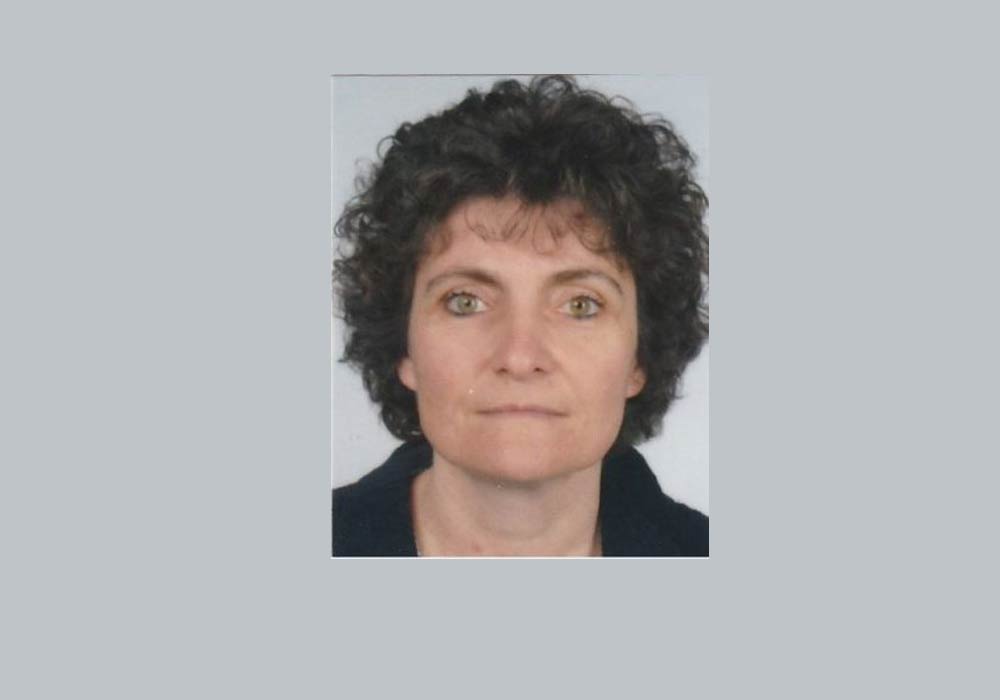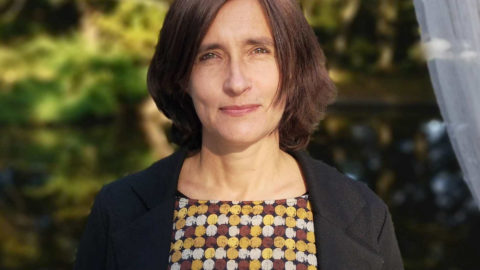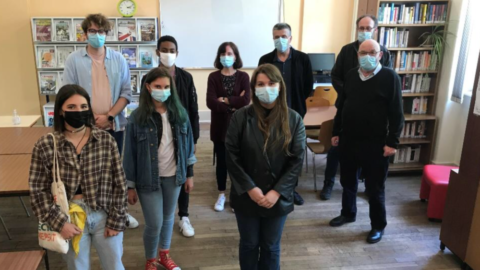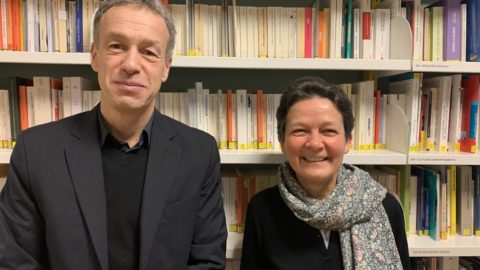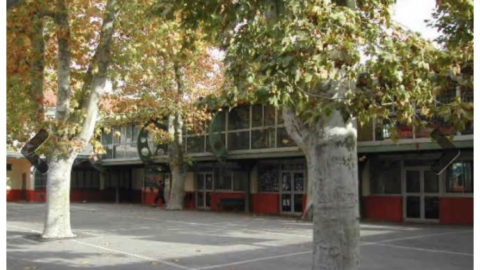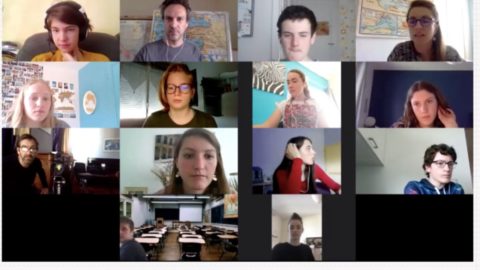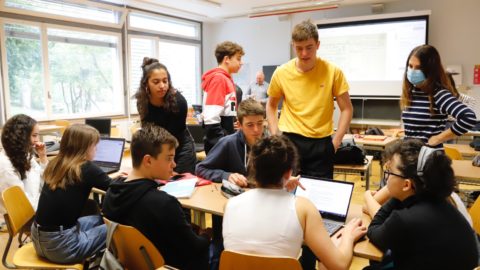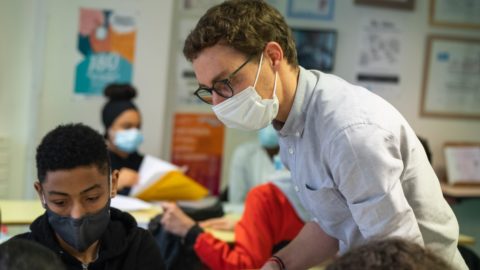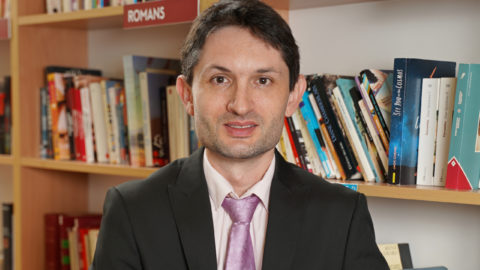Ghyslaine Schweizer and her vocational high school students worked on the biography of Marcel Michel, a slate worker, then a fairground merchant and salesman in Paris, who was murdered at the age of 37. Their work is part of the eleven European projects chosen by the French Ministry of Education.
Please can you tell us about yourself and your class?
I am a Literature and History teacher and I have been working at the Emile Zola high school in Bar le Duc, in the Meuse department of France, for ten years.
My class is a class of 15 students studying for a French CAP ECMS (Certificate of Professional Aptitude, Commercial Employee with multiple specialties)
How did you organize this group work in the context of the Convoy 77 project?
We had to get organized straight away: we took stock of the information we had, provided by the Convoy 77 association. We started by showing the documents to the whole class and one student was in put in charge of writing down the information on a flip chart. This remained in the room and was added to as we received new information.
We then made a list of the organizations we needed to contact for more information. The students then shared the research work.
Alone or in pairs, they contacted a town hall or an archive service by letter or email. Others researched in the online archives. We also had to extend our research beyond the Meuse department, particularly to the Paris area.
This work took place over a year. We updated the situation every time we received new information. These new findings often prompted us to make further requests, until the point when we could no longer obtain any additional information.
The students were also keen to find some descendants. I have to say that this part was more my responsibility, as I phoned several namesakes in several towns in the Paris area. I was thus able to find three descendants from two different generations.
The following year, at the beginning of the school year, we started writing. I produced a table, dividing Marcel Michel’s life into several parts according to the information we had collected. The students made several drafts which I annotated until we arrived at an accurate account.
What impact has this work had, from an individual point of view (on you personally and on the students) and also more broadly (on the school, the municipality and others)?
The project enabled the students to take the initiative. For example, some of them suggested contacting online genealogy services to help us with the research in Paris.
Before starting this project, the students had very little knowledge of the Holocaust. I could even say none at all for a large majority of them. In addition to writing the biography, we visited various places that this deportee had passed through, including Drancy camp. We were also part of a group of eleven classes chosen by the Shoah Memorial in Paris to visit the Auschwitz extermination camp. The students were able to see for themselves the industrial nature of the Nazi killing project. This place was the last stop for Marcel Michel. The story had come full circle.
All these experiences made the students aware of the tragedy of the Holocaust and caused them to reflect on what intolerance and disrespect for others can lead to.
This had a tangible effect: one student in the class, Kévin, used the term “passeur de mémoire” (“passer-on of memories”) in a dispute with another student who had made the Hitler salute in the school yard. He reminded him in a few words of what Nazi politics had been capable of by describing what he had seen and learned during the project.
As far as I am concerned, as a teacher, I enjoyed the fact that this was not only a teaching role. I was more of a coordinator and resource helper when the students were stuck. This project reinforced my feeling that history is always better perceived by students when it is approached through real life situations. It was much more meaningful for them than any lecture I could have given.
At school level, the biography was published on our school website. A journalist was interested in our work and came to interview the students after their return from the Auschwitz extermination camp. Their feelings and testimonies are edifying and show how much they were moved by the trip and by the history of the Holocaust in particular.
Your work was chosen as one of the most noteworthy projects. How do you and/or the students feel about that?
The students and I were very moved, because our work brought this man out of the shadows. He is no longer just a name on a list of deportees, he now has a story, and a face, and we have even helped his family to learn more about his life. The fact that the biography has been chosen makes it possible to raise his profile further still.
The students are of course also very proud of their work. The fact that this project was chosen has shown them that even though they are in vocational school (often seen as a “back door”), they are capable of taking on an assignment and that their work is appreciated.
What advice would you give to other teachers who would like to participate in the project?
I would recommend this experience to my colleagues: this project enabled the students to organize themselves, write, synthesize information and work as a team.
I think it is essential to have a small class and the class must be enthusiastic about the project from the start. Motivation is the cornerstone of everything, it helps the students to be more reactive, to take the initiative and above all to take pleasure in their work.
The teacher must also be well organized and supervise the work. However, the teacher also needs to know how to find the right balance between supervision, guidance and the degree of autonomy given to the students.
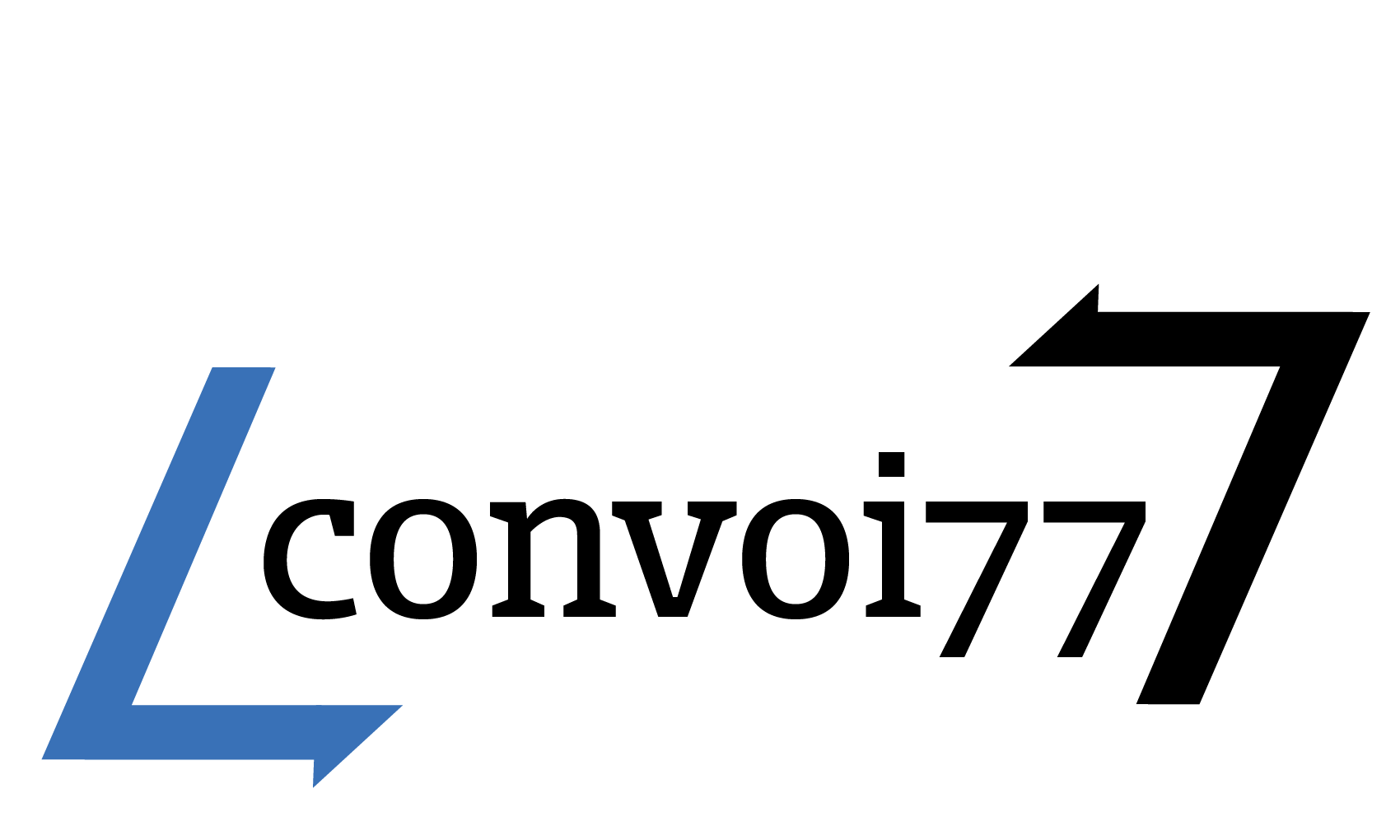

 Français
Français Polski
Polski